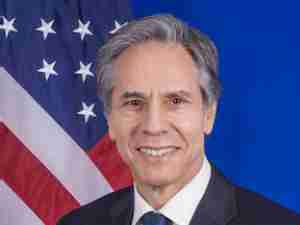China ready to grab business after EU-Russia showdown
By: Reuters | Oct 02 2014 at 04:14 PM | International Trade
China is ready to seize any business opportunities in Russia resulting from Moscow's diplomatic showdown with Europe over Ukraine, Beijing's ambassador to Berlin said ahead of a meeting of German and Chinese leaders next week.
In an interview, Shi Mingde said there was no "Schadenfreude" in China over the standoff, which has led German and other European firms to rein in their Russian activities amid tit-for-tat sanctions.
"We want better relations between Russia and the EU," Shi told Reuters. "But if opportunities arise, then why shouldn't they be seized? This is self-evident. We didn't bring about this conflict."
German industry has warned that Chinese companies will swoop to fill the gaps left by departing European rivals, resulting in irreparable damage to German firms that have painstakingly built up their presence in Russia over decades.
Over 6,000 German firms are active in Russia and Germany is by far Russia's biggest trading partner in Europe. But the Ukraine crisis has taken a toll on the economic relationship, with German exports to Russia expected to fall by up to 25 percent this year.
In response to the crisis, Russian President Vladimir Putin has turned to China. In May, the two countries signed a $400 billion gas supply deal and Moscow has vowed to double bilateral trade by 2020.
Earlier this week, Russia's largest hydropower producer, RusHydro (HYDR.MM) said it was planning an extensive roadshow to attract investment from China. In the past, the relationship was dogged by fears in Russia that China was more interested in getting its hands on its natural resources than setting up permanent shop in the country.
"We want very strong economic ties to Russia," said Shi. "We are especially interested in cooperation on raw materials."
Ultrasonic Scandal
Economic ties between China and Germany will be at the top of the agenda at bi-annual government consultations next week in Berlin, attended by Chinese Premier Li Keqiang.
His visit comes three months after German Chancellor Angela Merkel traveled to China, while Chinese President Xi Jinping had visited Berlin in March.
Ambassador Shi said he expected bilateral trade between the two export powerhouses to hit a new record this year after dipping in 2013 and he sought to play down frictions in the relationship.
A recent crackdown by China's anti-monopoly regulator against big foreign firms, including German carmaker Volkswagen (VOWG_p.DE), has unsettled the industry.
And a series of scandals involving Chinese firms listed on the Frankfurt stock exchange, including the bizarre disappearance of shoemaker Ultrasonic's (US5.DE) Chinese CEO last month and collapse in its shares, has also hit confidence.
Shi dismissed Ultrasonic as an "isolated case" and said Chinese and German authorities would work together to investigate such incidents and prevent them from recurring.
He also denied that antitrust actions against carmakers and auto parts suppliers in China were specifically targeting foreign firms.
"We have an antitrust law and 90 percent of the actions have been directed against Chinese firms, only 10 percent against foreign firms. As for the foreign carmakers, they have admitted to violations," he added, predicting new deals in the auto sector during next week's visit. (Reuters)










